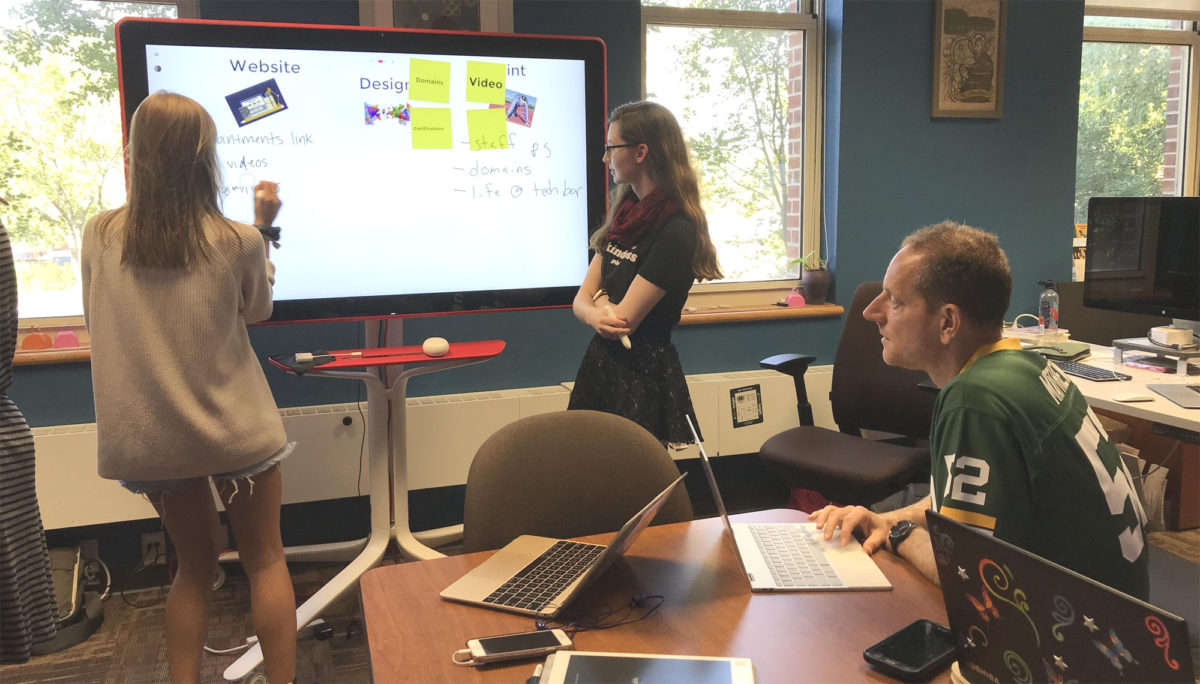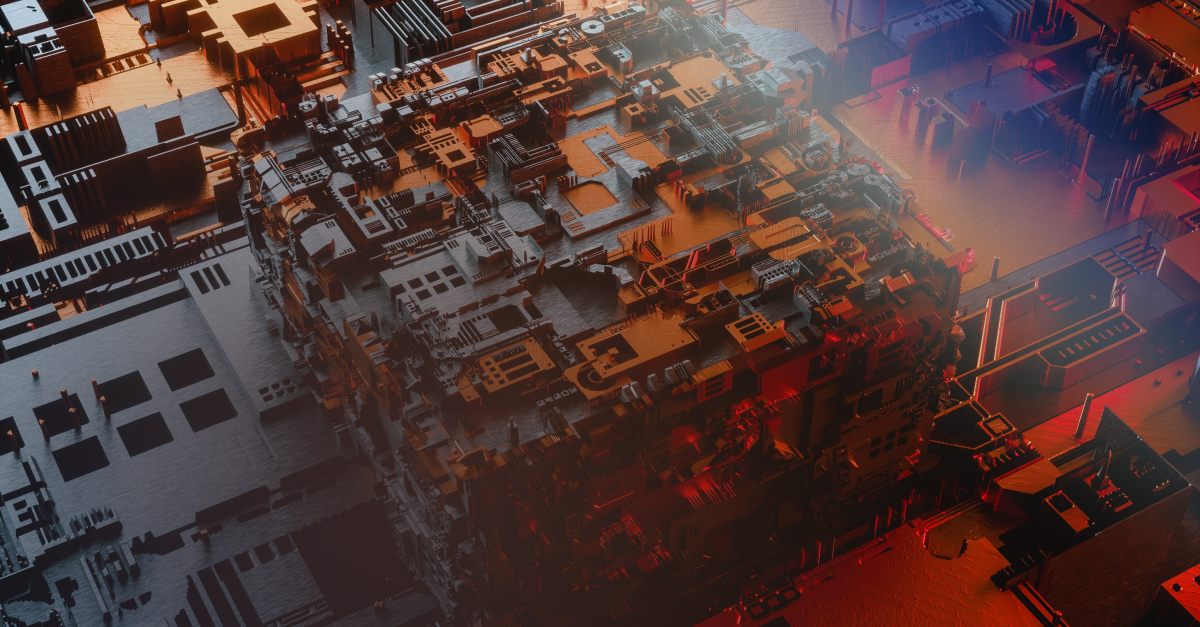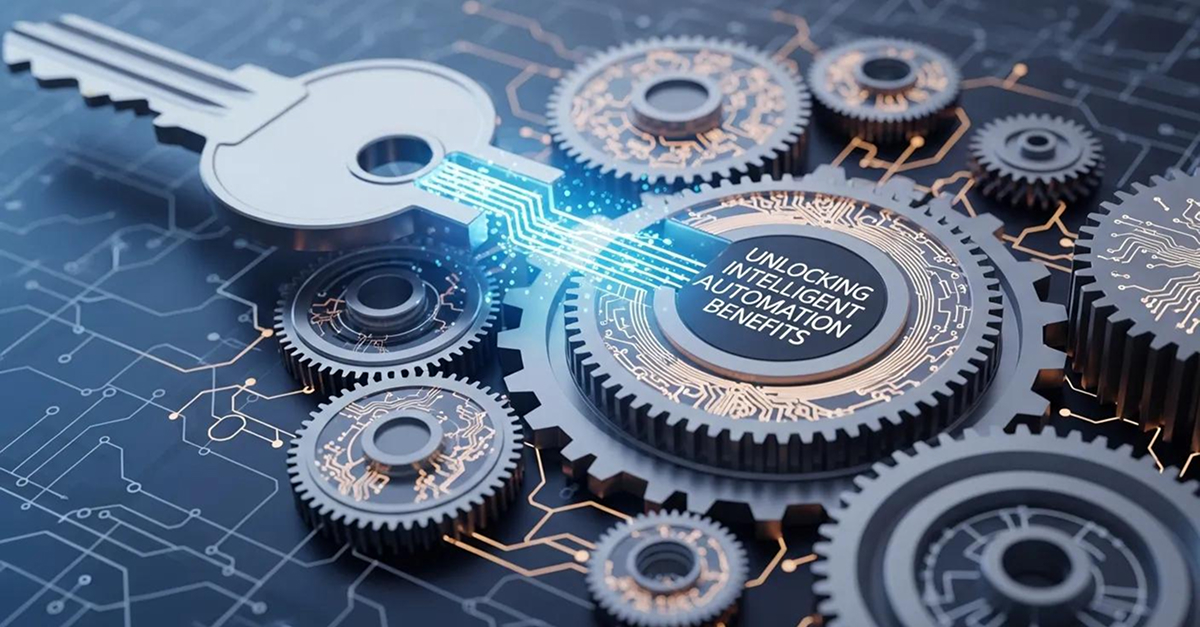Composable AI Architecture: How to Build Modular AI Systems That You Actually Control
AI models change every few months. Your enterprise workflows shouldn't have to change with them....
Colleges and universities have been supporting student use of technology, in various forms, for decades. Even before widespread adoption of laptops, high-speed Internet, and mobile technology,...

Colleges and universities have been supporting student use of technology, in various forms, for decades. Even before widespread adoption of laptops, high-speed Internet, and mobile technology, library professionals were helping students use photocopiers and microfiche readers.
Support services have evolved alongside the technology students need to use on campus and in lecture halls. IT help desk teams were hired and expanded to assist students with connectivity issues and software glitches, most commonly via phone, email, or (more recently) online chat support. Students also supported each other, generally informally, in common areas or study groups.
Today, more higher education institutions are recognizing the need to provide students with holistic technology support, including live, one-on-one support through tech bars. Before exploring the benefits, here’s a brief definition.
A physical location on campus where technicians provide students with in-person assistance in using campus technologies. Technologies may include laptops, special-purpose hardware, and software. The tech bar may also serve faculty and staff, and may provide additional technical services such as application support, hardware repair, and equipment loans.
As noted here previously, though the terms “tech bar” and “help desk” are sometimes used interchangeably, they are distinct offerings. Help desk support is typically focused on software or hardware troubleshooting, available for extended hours, and delivered primarily via phone and email. A tech bar, in contrast, often focuses on “how to” support, during limited hours, via in-person scheduled or walk-up service.
Another way of describing the difference is that a help desk focuses on solving operational issues (Can I connect to campus WiFi? Get into my campus email?), while a tech bar focuses on fostering digital literacy. Though students entering college today from high school have grown up with social media and mobile devices, many have no idea how to do complex calculations in a spreadsheet or create a presentation.
If your school isn’t already offering in-person assistance to support the full spectrum of student technology use, here are six reasons to create a campus tech bar.
As technology plays a larger and larger role in learning, it’s imperative that students have support not only to remain functional (their laptops work, they have the right software installed, they can connect to campus WiFi), but also to effectively use the technology. The subject matter of their courses is challenging enough. Using the technology required shouldn’t be an obstacle.
College and university tech bars are one component in a broader “technology support ecosystem” that provides a full range of assistance with digital technologies. This broader ecosystem may include one or more tech bars, a more traditional IT help desk, library and lab resources, and in some cases (such as for in-warranty laptop and mobile phone repairs) even off-campus providers like an Apple Store or Geek Squad location.
The key requirement is that anyone working within the ecosystem can direct students, staff, and faculty to the right place to get any type of issue resolved. The “full range” of technology support services includes:
“How to” assistance / tutoring: One-on-one or small group sessions to help students make use of classroom technologies. Topics include how to create and edit a video; how to set up a WordPress blog; and how to record and edit a podcast, among many others. It may also include assistance with the school’s learning management system (LMS).
Software installation and troubleshooting: This includes activities like diagnosing and fixing the causes of error messages, software conflicts, and screen lock-ups. It often also entails installing software patches and ensuring anti-virus software is up to date.
General IT help: Typically provided by the help desk but sometimes at the tech bar, this involves dealing with issues like WiFi connectivity, email access, and password resets.
Access to and help with specialty equipment: This ranges from help with using a resource like a 3D printer up to a full-scale wind tunnel. It can also include highly specialized devices like the tornado simulator at Iowa State University.
Hardware repair (school-owned or sold devices): Higher ed institutions will often hire staff or contract with a third-party to support devices like laptops or tablets owned or sold by the university. This is usually separate from the tech bar or help desk as (in the case of equipment sold by the school to students) some repairs may incur a fee.
Hardware repair (student-owned devices): For devices students bring with them to school, services and policies vary widely. Some colleges and universities offer professional hardware repair services for a fee. Others will perform out-of-warranty service if a liability waiver is signed. And still others will only refer students to off-campus providers.
Equipment loans: It’s common for higher education institutions to offer short-term equipment loans for laptops as well as devices like projectors and 360-degree cameras. The loans are generally free although substantial late fees can accrue if the equipment is not returned when due.
Potential new students (and their parents) scrutinize schools carefully on every campus visit. Higher education is a huge investment, and often means taking on significant student loan debt. Students (and their parents) want to be assured there are resources in place to help them succeed.
Tutoring, study groups, faculty office hours, and writing centers are all part of that mix. Vitally, a tech bar can help support student success through digital literacy, device and troubleshooting help, and equipment loans.
Knowing there’s a tech bar in place—particularly one that students have played a significant role in designing—enhances student (and parent) confidence in that college or university. And that’s a powerful marketing message.
Having a tech bar allows teachers to require greater use of digital tools in their coursework, which better prepares students for the professional world. Faculty are more likely to incorporate technology when they don’t have to be experts in it—or provide support to dozens or hundreds of students.
Examples include website design, virtual reality (VR), podcasting, video production, and digital mapping.
As the dean for digital learning at one Pennsylvania-based college notes, “Our mission is to support and inspire faculty to integrate tools and pedagogies and to provide the support and partnership necessary from our digital learning assistants (DLAs) so they and their students can be successful. The instructional designers and the DLAs are really pedagogical partners. That partnership enables more integration of digital technologies knowing that faculty don’t have to be experts with these practices.”
Many campus bookstores sell technology such as laptops. It’s an additional income source for the school and assures students they will have the hardware and software needed to meet their coursework requirements.
Providing tech bar support for the technology you sell is an added incentive for students to buy it. It also supports student success by keeping their hardware and software operational.
At one Midwestern university, 40% of incoming students now purchase laptops from the campus bookstore. The school’s tech bar is a certified Apple and Dell repair center. Focusing on just two vendors simplifies support. It also enables the tech bar to provide loaner machines, when laptops are checked in for repair, that are preloaded with all university-required software.
Asked what they view as most noteworthy about their services, many tech bar leaders cite their student technicians. Learning not only the ins and outs of different technologies but also empathy and interpersonal communication skills makes those students more valuable to potential future employers.
In the words of the director of academic technology at one Wisconsin-based college, “What I’m most proud of is our tech bar students themselves. We just need students who are willing to learn and work with other students, staff, and faculty. It’s amazing how quickly they get to be really good at dealing with all kinds of different questions and being very patient with people. It’s about watching them grow.”
In summary, if your campus doesn’t already have a tech bar offering students scheduled or walk-up in-person service, now may be the time to launch one. Almost universally, leaders who’ve created tech bars at their schools say it wasn’t a hard sell. If you need to make the case, the six points above should help.
Kinetic Tech Bar is an end-to-end software solution for managing tech bar operations, from appointment booking to incident tracking and analytics to instant user feedback surveys. Learn more at KineticData.com.

AI models change every few months. Your enterprise workflows shouldn't have to change with them....

The BPM market is projected to reach $65–70 billion by 2032. Yet roughly 70% of BPM programs never...

Automation solutions are transforming the way businesses operate, enabling them to streamline processes,...